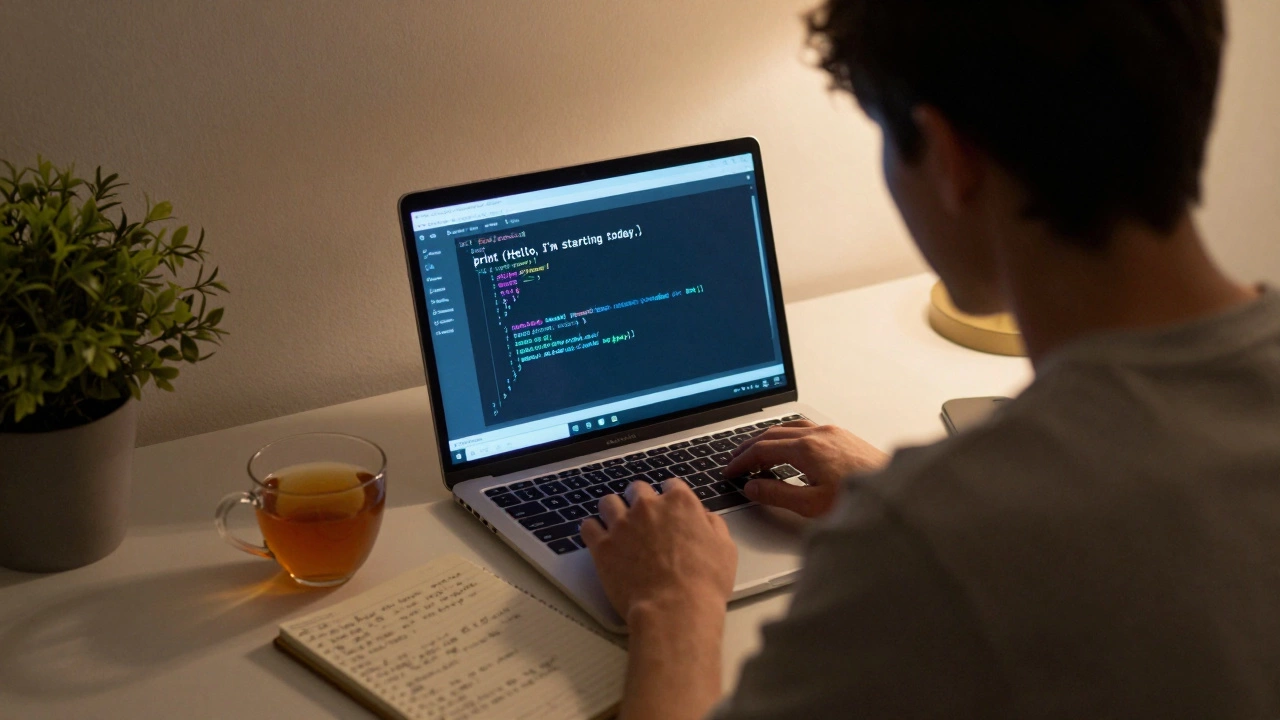Coding for Beginners – Your First Steps Made Easy
If you’ve ever thought about learning to code but didn’t know where to begin, you’re in the right place. Coding isn’t a magic trick; it’s a skill you can pick up with the right guidance and a bit of practice. In this guide we’ll break down the essentials, help you pick a language, and give you a quick roadmap to build your first program.
Why Coding Matters and What You’ll Gain
Every day we use software—whether it’s a mobile app, a website, or a smart device. Knowing how that software works opens up career options, lets you automate boring tasks, and even fuels your creativity. For beginners, the biggest win is confidence: once you write a line of code that runs, you’ll see how problems can be solved step by step.
Pick a Language That Fits Your Goal
Don’t get tangled in endless debates about “best language.” Choose one that matches what you want to create:
- Python – Great for data, web basics, and quick scripts. Its plain English‑like syntax makes it ideal for absolute beginners.
- JavaScript – If you’re eyeing web pages or interactive sites, it runs directly in the browser and gives instant visual feedback.
- Scratch – A visual block‑based tool that teaches programming logic without typing code. Perfect for younger learners.
Pick one, install the free tools (like VS Code for Python or just a browser for JavaScript), and stick with it for the first few weeks.
First Practical Steps
1. Set Up Your Environment. Download the language interpreter (Python.org for Python) and a simple code editor. Open a new file and save it with the correct extension – .py for Python or .js for JavaScript.
2. Write Hello World. This classic program shows everything works:
# Python
print("Hello, world!")
// JavaScript
console.log("Hello, world!");Run the file. If you see the message, you’ve just taken your first successful step.
3. Learn Variables and Data Types. Variables store information you’ll use later. Try this:
# Python
age = 20
name = "Amit"
print(name, "is", age)
// JavaScript
let age = 20;
let name = "Amit";
console.log(name + " is " + age);
Play around – change the values, add numbers, and see how the output changes.
4. Control Flow – If Statements and Loops. These let your code make decisions and repeat actions.
# Python
for i in range(1, 6):
if i % 2 == 0:
print(i, "is even")
else:
print(i, "is odd")
// JavaScript
for (let i = 1; i <= 5; i++) {
if (i % 2 === 0) {
console.log(i + " is even");
} else {
console.log(i + " is odd");
}
}
Run it and watch how the loop and condition work together.
Build a Mini Project Quickly
Nothing cements learning like a tiny project. Try a guess‑the‑number game. The program picks a random number, you type guesses, and it tells you if you’re too high or low. It combines variables, loops, and conditionals—all in under 30 lines.
When you finish, share the code with a friend or post it on a community forum. Getting feedback is a great motivator.
Common Mistakes and How to Fix Them
Syntax errors. Forgetting a colon in Python or a semicolon in JavaScript will stop the script. Read the error message—it points to the exact line.
Skipping practice. One hour of coding a week isn’t enough. Aim for 30‑minute daily sessions; consistency beats marathon sessions.
Trying to learn everything at once. Stick to one concept at a time. Master variables before moving to functions.
Next Steps After the Basics
Once you’re comfortable with the basics, explore these paths:
- Web development – learn HTML/CSS plus JavaScript.
- Data analysis – dive deeper into Python libraries like pandas and matplotlib.
- Mobile apps – try React Native (JavaScript) or Kivy (Python).
Pick a direction that excites you and start a small project in that area. The learning curve will stay gentle because you already have the foundation.
Remember, coding is a muscle. The more you use it, the stronger it gets. Grab a tutorial, write a line of code today, and watch your confidence grow.
How to Start Coding for Beginners: A Simple Step-by-Step Guide
Learn how to start coding as a beginner with simple steps, free tools, and real projects. No experience needed-just curiosity and consistency.
read moreIs coding difficult for beginners? What to expect when starting out
Is coding difficult for beginners? It’s not about talent-it’s about consistency. Learn what to expect, common mistakes to avoid, and how to start coding with zero experience.
read moreCan I Learn Coding for Free? Here’s Exactly How to Get Started in 2025
Yes, you can learn coding for free with high-quality resources like freeCodeCamp, Google's Python Course, and CS50. No degree or money needed-just consistency and projects. Here's how to start in 2025.
read moreMost Useful Code to Learn: What's Worth Your Time?
Trying to choose the most useful coding language can be overwhelming with endless options everywhere you look. This article lays out why some languages are more practical, what makes one stand out, and how real-world needs matter more than hype. You'll get tips to pick a code language that actually leads to results, not just frustration. Whether you're a parent guiding your kid or an adult picking up coding, you'll find answers here. Know what to focus on—so you (or your kid) spend time learning what really counts.
read more


